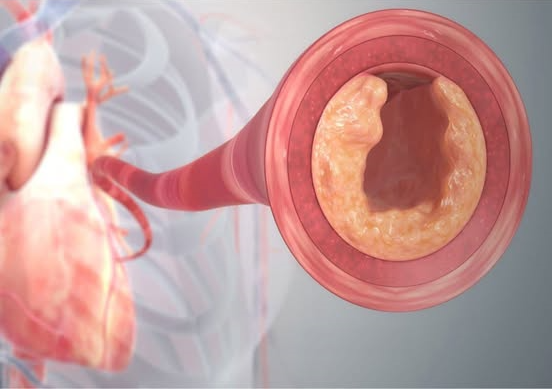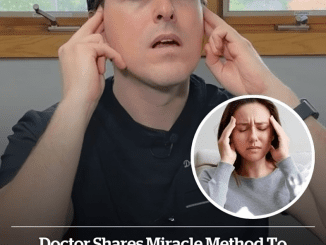Have you ever wondered if your body is trying to tell you something about your heart health? Clogged arteries don’t happen overnight—they develop gradually, often without obvious symptoms. Yet, your body might be sending you warning signs before a major event like a heart attack or stroke occurs. Recognizing these clues early on can help you take action and protect your health.
Arteries are like highways, delivering oxygen-rich blood to your organs and muscles. When they become clogged with plaque, blood flow slows down, leading to potential life-threatening complications. Let’s explore the key signs that your arteries may be in trouble.

Why Early Detection Matters
Blocked arteries don’t just put your heart at risk—they can affect your brain, limbs, and overall energy levels. If left untreated, plaque buildup can lead to high blood pressure, chest pain, and even organ failure. The good news? Lifestyle changes like a heart-healthy diet, regular exercise, and medication (if needed) can slow or even reverse the damage.
If you experience any of these warning signs, it’s time to take them seriously and consult a doctor.
1. Nausea and Dizziness
Feeling queasy often? Persistent nausea can be linked to poor circulation caused by clogged arteries. Your digestive system requires a steady blood supply to function properly. If blood flow is restricted, nausea and dizziness can become frequent occurrences.
2. Chest Pain (Angina)
Chest pain is one of the most well-known indicators of heart trouble. Angina occurs when your heart doesn’t get enough oxygen due to narrowed arteries. This pain may feel like pressure, tightness, or burning and can radiate to your arms, shoulders, jaw, or back. If you experience persistent or severe chest discomfort, seek medical attention immediately.
3. Shortness of Breat
Do you find yourself gasping for air after mild activities? When your arteries are blocked, your heart struggles to pump oxygenated blood efficiently. This can make you feel breathless even when doing simple tasks like walking or climbing stairs. If you notice a sudden or ongoing struggle to catch your breath, it may be a red flag.
4. Weakness or Numbness on One Side of the Body
A sudden feeling of weakness or numbness, especially on one side of your body, could indicate restricted blood flow to the brain. This is a major sign of carotid artery disease, which can lead to a stroke. Never ignore unexplained numbness—seek emergency medical help immediately.
5. Slurred Speech
If you or someone you know suddenly starts slurring words, it could be more than just fatigue. Impaired speech can be a sign of poor circulation to the brain, often caused by clogged carotid arteries. If this symptom appears suddenly and without explanation, it requires urgent medical evaluation.
6. Vision Problems
Blurred or temporary vision loss in one eye might be a sign that blood isn’t reaching your optic nerve properly. If the carotid artery is blocked, your eyesight may suffer. Unexplained vision issues should always be checked by a doctor, as they can indicate underlying heart-related conditions.
7. Leg Pain and Cramping

Pain in your legs while walking or standing for long periods could be a sign of peripheral artery disease (PAD). This occurs when plaque builds up in the arteries supplying blood to your legs, leading to pain, cramping, and weakness. If the pain stops when you rest but returns when you walk, your arteries could be partially blocked.
8. Cold Feet and Toes
Ever notice that your feet are constantly cold, even when the rest of your body feels fine? Poor circulation due to blocked arteries can limit blood flow to your extremities. If your toes often feel ice-cold or look pale and blue, it could indicate a serious circulation problem.
9. Slow-Healing Wounds on the Feet
If cuts or wounds on your feet and legs take a long time to heal, poor circulation might be to blame. Blood delivers oxygen and nutrients necessary for healing, so restricted flow can slow down recovery. Unexplained sores or ulcers that won’t heal should be checked by a doctor.
10. Irregular Heartbeat or Palpitations

If you’ve ever felt your heart flutter, pound, or race for no clear reason, it might be linked to circulation issues. An irregular heartbeat can be caused by the heart working harder to compensate for clogged arteries. If you notice frequent palpitations, it’s time to get your heart health evaluated.
Take Action: What You Can Do Next
If any of these symptoms sound familiar, don’t ignore them. Here’s what you can do right now:
✅ See a Doctor: Early diagnosis can help prevent serious complications like heart attacks and strokes.
✅ Adopt a Heart-Healthy Diet: Reduce saturated fats, processed foods, and sugar. Load up on fruits, vegetables, whole grains, and lean proteins.
✅ Stay Active: Regular exercise can help improve circulation and reduce plaque buildup. Even walking 30 minutes a day makes a difference.
✅ Quit Smoking: Smoking damages blood vessels and accelerates artery blockage. Quitting can significantly improve heart health.
✅ Monitor Your Blood Pressure & Cholesterol: High levels of both can contribute to clogged arteries. Regular check-ups are key.
Final Thoughts
Your body is always sending signals—it’s up to you to listen. If you’re experiencing any of these signs, don’t wait for things to get worse. Addressing clogged arteries early can be life-saving. Small changes in lifestyle and timely medical intervention can help keep your heart and arteries in top shape.
A Word of Caution: This article is for informational purposes only and should not replace professional medical advice. If you suspect you have heart or circulation issues, consult a healthcare provider immediately.


